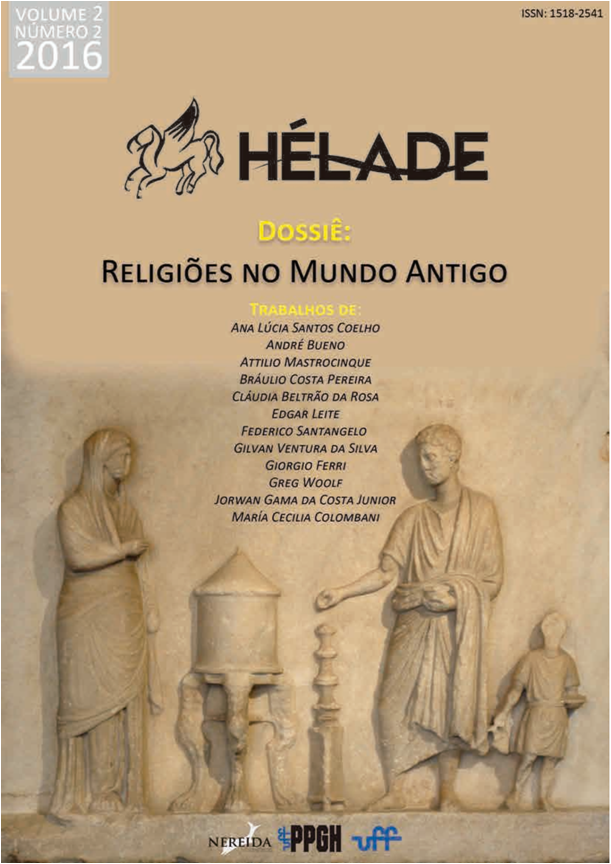LEI E ADIVINHAÇÃO NA REPÚBLICA ROMANA TARDIA
DOI:
https://doi.org/10.22409/rh.v2i2.10565Palavras-chave:
Adivinhação, predição, lei, previsão, jurisprudência, conhecimento, República romana, Cícero.Resumo
Este artigo lida com as interseções entre lei e adivinhação na República romana tardia, enfocando principalmente a evidência de Cícero e alguns termos recorrentes em suas obras, notadamente divinato e prudenta. Outros materiais comparativos farão parte da discussão, bem como a evidência de outros autores romanos, especialmente Plauto. É enfatzado um importante grau de afnidade entre lei e adivinhação e sua forte ligação com o conhecimento especializado e as respostas autorizadas.(Tradução: Cláudia Beltrão)
Downloads
Os dados de download ainda não estão disponíveis.
Downloads
Publicado
2016-10-08
Edição
Seção
Dossiê Temático
Licença
Ao encaminhar textos à Revista Hélade, o autor estará cedendo integralmente seus direitos patrimoniais da obra à publicação, permanecendo detentor de seus direitos morais (autoria e identificação na obra), conforme estabelece a legislação específica.
O trabalho publicado é considerado colaboração e, portanto, o autor não receberá qualquer remuneração para tal, bem como nada lhe será cobrado em troca para a publicação.
Os textos são de responsabilidade de seus autores. Citações e transcrições são permitidas mediante menção às fontes.
O uso dos textos publicados em nossa revista poderão ser distribuídos por outros meios, desde de que atribuídos devidamente à autoria e publicação.

